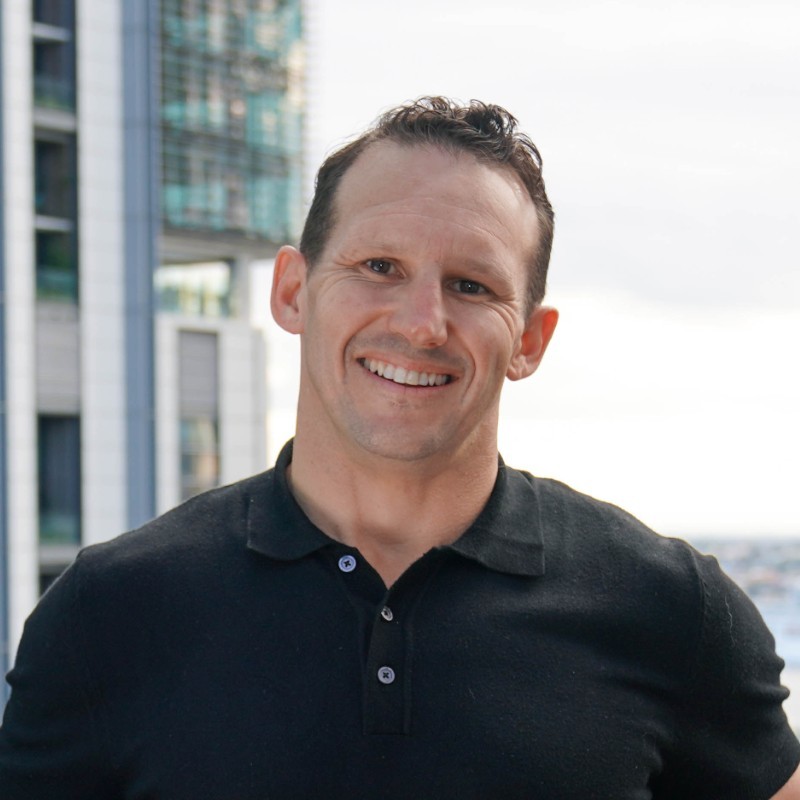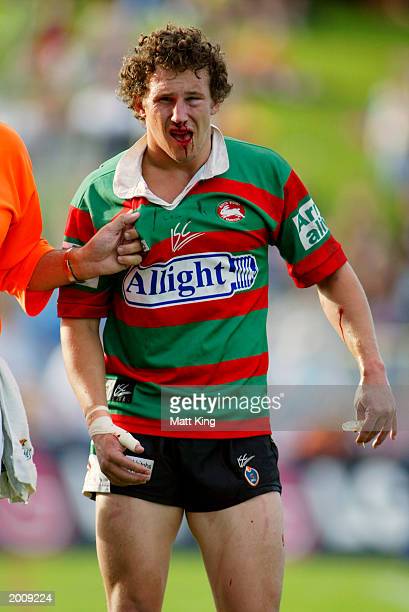29 May Concussion in sport – Brett Kearney
We are excited to announce that Brett Kearney has recently come on board as an ambassador for the Brain Foundation. You may know him better as “BK” – a nickname earned during his years playing rugby league, both in Australia and overseas.
Like many Australians, Brett is no stranger to the impacts of brain diseases, disorders and injuries. Concussions and head injuries are particularly common in contact sports, so Brett has first hand experiences with the impacts of these injuries. Since his retirement he has been interested in learning more about the brain and speaking about the importance of research to improve the lives of people who are affected by neurological conditions.
He spoke to us about his story and the experiences that led to him becoming an ambassador for the Brain Foundation.
Brain Foundation: Can you please tell us a bit about your career and how you became a professional rugby player?
Brett Kearney: I have been passionate about rugby since I was young. I started playing at the age of 6 and signed my first contract with the North Sydney Bears at 14 years old. In 2003, aged 19, I made my First Grade Debut with the South Sydney Rabbitohs. They were my favourite team as a kid and I played with them for three years.

Throughout my career, I played 77 NRL games, 1 representative game for NSW Country, and 112 Super League games in the UK. Eventually I retired from professional Rugby League in 2014.
BF: Did you have many injuries, particularly head injuries, during your career?
BK: Just like any professional sport, injuries are unfortunately common and often unavoidable in rugby league. I had three major head injuries before the age of 20 and more throughout the rest of my career.
One head knock that really scared me happened while I was playing in the UK. We had back-to-back games over the Easter long weekend, and I had a concussion in the first game. At the time I thought nothing of it, until I received another knock a couple of days later and the effects were quite scary.
BF: What were some of the impacts of these injuries?
BK: Every injury is different – sometimes you recover quickly, and other times it’s clear that something is wrong. The concussion from that long weekend in the UK was particularly concerning. After the first knock, I wasn’t worried and I went about my game prep for the next game as normal. After the second knock however, I had much more severe concussion symptoms – confusion, dizziness, a headache – my cognition was really affected.
I was sitting in the living room and my wife had turned the light on. Concussions can also cause light sensitivity, and I kept asking her to “shut the lamp”. She was confused and didn’t understand what I meant. There wasn’t a lamp in the room and she thought I was maybe asking her to shut the door. It was quite scary for both of us that I couldn’t articulate my thoughts or speak clearly.
I didn’t think of long term effects and proceeded to do what I did every week and get ready for the next game. It was the only time in my career I went into a game scared. I knew I wasn’t right.
Now, the knowledge that there can be long-term complications from concussions is always in the back of my mind. I wonder if my behaviour, thinking, and brain in general has been altered by the injuries I had during my career. Unfortunately, there’s no single test that can diagnose this or tell me if something might be wrong.

BF: Despite these risks, rugby league and other contact sports are such an important part of Australian culture and social life. How do you think we can make them safer for players?
BK: This is something that is really important to me. Even though the injuries I’ve talked about were alarming at times, I do not regret my career and rugby will always mean so much to me.
Like I said before, many injuries in contact sports are unavoidable. We have made it safer over the years (for example, high tackles are much stricter and shoulder chargers have been banned), but we will never be able to guarantee that players won’t be injured. I feel the important thing is to talk openly about the risk and make sure that people are educated about the impact of head injuries and concussion.
At the start of my career, no one ever talked about the impact of a head knock. People would generally dismiss their symptoms or try to hide them because they wanted to get back on the field. I don’t think I ever really knew what concussion was. Thankfully, the conversation is changing, but there is still so much more that we can do.
Research is also really important. There is still so much that we don’t know about concussion and head injuries. They can be difficult to diagnose, and recovery is different for everyone. We need more research so that players know how serious their injuries are and when they can safely return to play.

BF: What does it mean to you to be an ambassador for the Brain Foundation?
BK: I’m excited to be an ambassador for the Brain Foundation for a few different reasons. It wasn’t until late in my career that I started to look for a deeper understanding of brain injuries. Answers were not easy to find. I was always very casual with concussion, and felt the worst part of sustaining head injuries was the time I would not be on the field.
Now that I’m starting to learn more, I want to help raise awareness and promote the importance of research. Deeper research can help develop new treatments and the capacity for early diagnosis if someone has long-term complications after a brain injury. Concussion and brain injuries are my obvious focus at the moment, as my understanding of brain diseases is in its infancy. But through this partnership I want to learn more about the brain and help raise awareness for the impact of other brain diseases, disorders and injuries.
Thank you so much Brett for sharing your story with us and choosing to become an ambassador for the Brain Foundation. Your support will help so many people learn more about the impact of brain diseases, disorders and injuries.
If you’d like to stay in the loop and hear more from Brett, you can follow him on social media.


 The Brain Foundation is the largest, independent funder of brain and spinal injury research in Australia. We believe research is the pathway to recovery.
The Brain Foundation is the largest, independent funder of brain and spinal injury research in Australia. We believe research is the pathway to recovery.